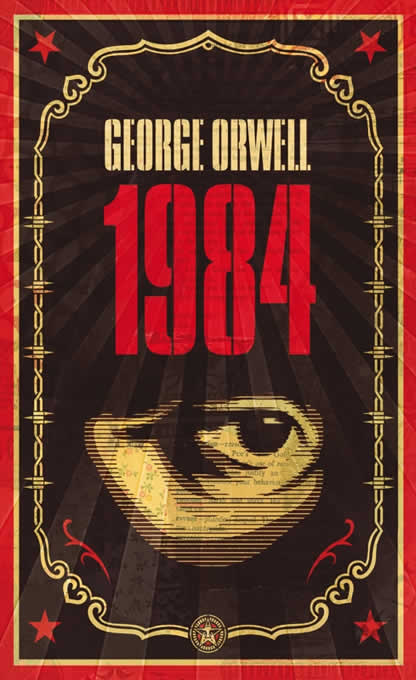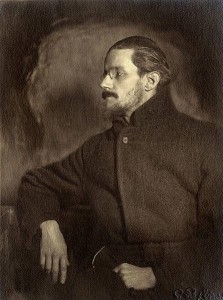While the television show The Soup brings you “the strange, obscure and totally unbelievable moments in pop culture, celebrity news and reality TV,” Word Soup brings you those strange, obscure, unbelievable (and sometimes NSFW) words from talk shows, sitcoms, dramas, and just about anything else on TV.
assassitunity
Jon Stewart: “Remember when you oversaw the killing of Osama bin Laden? You must have known this photo would go viral. You had to think of it as an assassitunity.”
The Daily Show with Jon Stewart, June 13, 2012
Assassitunity, a blend of assassinate and opportunity, refers to using the assassination of Osama bin Laden as a PR opportunity. See other opportunity portmanteaus, disadvertunity, hobbyturnity, and talk-portunity.
Baba-Nyonya
Anthony Bourdain: “The Baba-Nyonya are descendents of the original Chinese merchants who settled [in Penang] hundreds of years ago. Over time they took on a lot of flavors and ingredients of their new environment. The resulting cuisine is a truly unique mutation, a fusion of local southeast Asian ingredients and taste preferences with Chinese technique and preparation.”
“Penang,” No Reservations, June 4, 2012
The Baba-Nyonya are also known as Peranakan or “descendents.” The word Baba-Nyonya translates as “men-women,” where baba refers to men and is a “Persian loan-word borrowed by Malaysian,” and nyonya, referring to women, is “a Javanese loan-word honorific.”
balitong
Anthony Bourdain: “What is it about the food here that makes it so damned magical, beyond the incredible mix of influences? The ingredients. Case in point, these cute little sea snails, somewhere between a periwinkle and a whelk, called balitong.”
“Penang,” No Reservations, June 4, 2012
Balitong, which may come from the name of a Javanese king, is also known as the obtuse horn shell; in Malay, siput sedut, which translates as either “snail suction” or “snail breathe”; and, in Hokkein, chut-chut, imitative of the sound of sucking out the snail from its shell.
dressage
Stephen Colbert: “But folks, the image of Romney as a privileged princeling ends today, because now Mitt is just your average blue-collar fan of dressage. Of course that word may sound high-falutin’, but don’t worry, it also goes by the street name ‘horse ballet.’”
The Colbert Report, June 12, 2012
Dressage is “the guiding of a horse through a series of complex maneuvers by slight movements of the rider’s hands, legs, and weight,” and comes from the French dresser, “to set up, arrange, train.” More horse-related words.
free lunch
Stephen Colbert: “But sadly folks, one public union recently scored a major victory, and that brings us to tonight’s word: free lunch. . . .These unionized lunch lady thugs now have the right to free expired cafeteria food, and given the quality of cafeteria food, expired is an improvement.”
The Colbert Report, June 13, 2012
A free lunch is “something acquired without due effort or without cost,” and was originally a mid-19th century term, says the Online Etymology Dictionary, that referred to free food “offered in bars to draw in business.” Related is the phrase there ain’t no such thing as a free lunch, sometimes abbreviated as TANSTAAFL, which seems to have originated in the 1930s or 1940s.
gaffestronomist
Jon Stewart: “All that remains is the bloody gaffe carcass to be picked over by our nation’s most esteemed gaffestronomists, who will measure the gaffe using the exact science of gaffestronomy.”
The Daily Show with Jon Stewart, June 11, 2012
Gaffestronomist is a play on gastronomist, also known as gastronomer, “one versed in gastronomy,” or “the art of preparing and serving rich or delicate and appetizing food.” Gaffe, “a foolish and embarrassing error, especially one made in public,” may come from the French gaffe, “clumsy remark” which originally meant “boat hook.” The sense connection may be, says World Wide Words, “because the emotional effect [of a blunder] is like being gaffed,” or pulled by a hook.
hot tooth
Joan: “Are you under the weather?”
Don: “I’ve got a hot tooth.”
“The Phantom,” Mad Men, June 10, 2012
A hot tooth is “a painful tooth” in which “the nerve is alive, but badly inflamed.”
kill list
News announcer: “The New York Times reports that the president has given himself the final word in a top secret nominating process to place terror suspects on a kill list.”
Jon Stewart: “Obama has a kill list? Assuming this goes with a marry list and a fuck list.”
The Daily Show with Jon Stewart, June 13, 2012
The marry, fuck, and kill lists are presumably in reference to the “game,” Marry-Fuck-Kill, or MFK, in which players list people they would marry, fuck, or kill.
laksa
Anthony Bourdain: “Every time I come to Malaysia, there’s one thing I gotta have: laksa. It’s everything I love in one bowl.”
“Penang,” No Reservations, June 4, 2012
Laksa is a spicy noodle soup. The word laksa may come from the “Hindi/Persian lakhshah, referring to a type of vermicelli, which in turn may be derived from the Sanskrit lakshas. . .meaning ‘one hundred thousand’ (lakh),” or else from the Chinese word “meaning ‘spicy sand’ due to the ground dried prawns which gives a sandy or gritty texture to the sauce.”
otak-otak
Anthony Bourdain: “But [the Baba-Nyonya] cuisine is in danger of disappearing as so many of the ingredients are difficult to source, and because dishes like this, otak-otak, a fish custard wrapped in banana leaf, are so labor-intensive to prepare.”
“Penang,” No Reservations, June 4, 2012
Otak translates from Malay as “brain.” Otak-otak seems to have gotten its name from the fish custard’s resemblance to brains.
selenium
Aasif Mandvi [regarding picture of two-headed fish]: “What is causing that?”
Marv Hoyt: “It’s the selenium in the water.”
Aasif Mandvi [after spit-taking a glass of water]: “Selenium is a toxic byproduct of phosphate mining, and in southeast Idaho, one company loves mining phosphate.”
The Daily Show with Jon Stewart, June 14, 2012
Selenium is a “a toxic nonmetallic element related to sulfur and tellurium.” The word comes from the Greek selēnē, “moon.” The company referred to here is Simplot, “one of the largest privately held agri-business companies in the world.”
tostilocos
Javier Plascencia: “You know Tostitos, right? The border culture has made something crazy. They call it tostilocos, which is tortilla chips, nuts, cucumber, salsa, and uncooked pig skin.”
“Baja,” No Reservations, May 28, 2012
Tostitos are a brand of tortilla chips, presumably a blend of tortilla and Frito or Dorito, while loco is Spanish for “crazy.” Border culture refers to culture at the U.S.-Mexico border.
walk back
Jon Stewart: “But of course as surely as winter follows fall, a full-grown gaffe must someday be walked back.”
The Daily Show with Jon Stewart, June 11, 2012
To walk back means “to withdraw or back-pedal on a statement or promise; retract.” Walk back may also take on a noun form, walk-back: “Welcome to the walk-back — a strained, three-act political exercise of speaking candidly, then shamelessly buckling under pressure.”
xenomorph
Stephen Colbert: “But nation, I’m not just annoyed, I’m terrified, because if [astrophysicist] Neil deGrasse Tyson points out everything inaccurate in movies and this was the only mistake he found, that can mean only one thing: everything else in Prometheus is true! The xenomorphs are coming for us!”
The Colbert Report, June 11, 2012
Xenomorph may refer to the extraterrestrial creatures in the Aliens movies, a monstrous creature in general, a strange form, or an allotriomorph, “a mineral that did not develop its otherwise typical external crystal form because of late crystallization between earlier formed crystals.” Xeno comes from the Greek xenos, “a guest, stranger, foreigner,” while morph comes from the Greek morphe, “shape, form.”
That’s it for this week! Remember, if you see any Word Soup-worthy words, let us know on Twitter with the hashtag #wordsoup. Your word and Twitter handle might appear right here!


